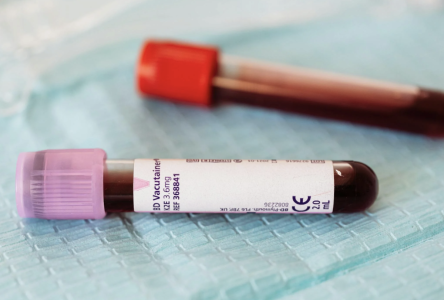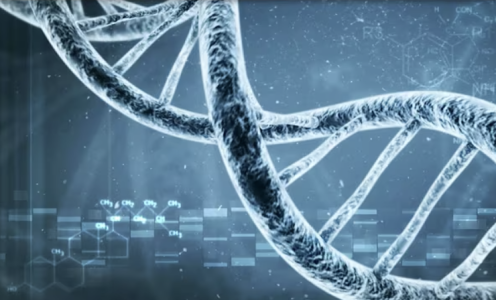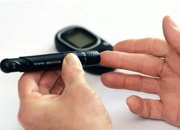Could a simple blood test detect cancer years before symptoms appear? New research offers hope
By
Veronica E.
- Replies 0
Disclaimer: The information provided in this article is for educational purposes only and is not intended as a substitute for professional medical advice, diagnosis, or treatment. Always consult your physician or other qualified healthcare providers with any questions you may have regarding a medical condition or before making any changes to your health regimen.
Imagine a future where your annual blood test could detect cancer years before any symptoms appear.
That possibility is no longer just science fiction.
A new study from Johns Hopkins suggests early detection may be possible by identifying tiny fragments of tumor DNA in the bloodstream.
These subtle signals can show up years before a tumor becomes detectable through scans or causes symptoms.
If validated in larger studies, this approach could dramatically shift the odds toward early treatment and better outcomes.

How it works: A new window into early cancer
The test in question is a multicancer early detection test that scans blood for circulating tumor DNA, or ctDNA—tiny fragments of mutated DNA that are shed by tumors into the bloodstream.
These genetic breadcrumbs can show up long before a tumor grows large enough to cause symptoms or be seen on a scan.
In the study, researchers analyzed blood samples from 52 people—26 who developed cancer within six months, and 26 who remained cancer-free.
The test flagged cancer in eight of those who went on to be diagnosed within four months. But in six of those eight, the researchers also had access to earlier blood samples—some taken more than three years before diagnosis.
Here’s where things got exciting: in four of those six earlier samples, cancer-linked DNA was already present.
It was faint—up to 79 times lower in quantity—but it was there. This suggests the test could potentially spot cancer years before any physical signs emerge.
Also read: Could a simple blood test reveal who’s more likely to experience fast-developing Alzheimer’s?
Why early detection matters, especially after 60
As we age, the risk of cancer increases—and the prognosis often depends on how early it's found.
Dr. Yuxuan Wang, the study’s lead author and an oncologist at Johns Hopkins, sees the impact of late-stage diagnoses every day.
"For most patients with advanced cancer, treatment is palliative," she explained.

"But if cancers can be detected years earlier, they are much more likely to be curable with surgery or other therapies."
A test that can catch cancer quietly developing beneath the surface could mean the difference between long-term survival and limited treatment options.
For older adults especially, it could be the early warning sign that saves a life.
Also read: This simple blood test could save your life–90% accurate in detecting colon cancer
What comes next: Promise and caution
While the results are encouraging, experts caution that this was a small study.
More research is needed to verify the test’s accuracy and determine how to interpret results—especially when scans and symptoms are still absent.
There's also the question of cost, availability, and what to do if a test flags a risk but doctors can’t yet confirm a diagnosis.
Still, the potential is enormous. “We often get excited about new treatments that extend life by a few months,” said Dr. Wang. “But early detection could mean a cure.”
Also read: This simple thumb test could reveal a hidden heart problem—are you at risk?
How you can stay proactive in the meantime
While we wait for larger trials and broader availability, there are still smart ways to take charge of your health:
Early cancer detection could change everything—from how we treat cancer to how we talk about it.
While this blood test isn’t ready for routine checkups just yet, the research opens the door to a more hopeful future.
Read next: How long will you live? This simple at-home test could offer some surprising clues

At The GrayVine, we know our readers value staying informed. Would you want to know if you were at risk for cancer years in advance? Do you feel hopeful—or cautious—about the idea of ultra-early detection?
Share your thoughts in the comments below. And if you or a loved one has faced a late-stage diagnosis, we’d love to hear your perspective. These conversations matter.
Imagine a future where your annual blood test could detect cancer years before any symptoms appear.
That possibility is no longer just science fiction.
A new study from Johns Hopkins suggests early detection may be possible by identifying tiny fragments of tumor DNA in the bloodstream.
These subtle signals can show up years before a tumor becomes detectable through scans or causes symptoms.
If validated in larger studies, this approach could dramatically shift the odds toward early treatment and better outcomes.

A routine blood draw may one day help detect cancer years before symptoms begin, offering hope for earlier treatment and better outcomes. Image Source: Pexels / Photo By: Kaboompics.com.
How it works: A new window into early cancer
The test in question is a multicancer early detection test that scans blood for circulating tumor DNA, or ctDNA—tiny fragments of mutated DNA that are shed by tumors into the bloodstream.
These genetic breadcrumbs can show up long before a tumor grows large enough to cause symptoms or be seen on a scan.
In the study, researchers analyzed blood samples from 52 people—26 who developed cancer within six months, and 26 who remained cancer-free.
The test flagged cancer in eight of those who went on to be diagnosed within four months. But in six of those eight, the researchers also had access to earlier blood samples—some taken more than three years before diagnosis.
Here’s where things got exciting: in four of those six earlier samples, cancer-linked DNA was already present.
It was faint—up to 79 times lower in quantity—but it was there. This suggests the test could potentially spot cancer years before any physical signs emerge.
Also read: Could a simple blood test reveal who’s more likely to experience fast-developing Alzheimer’s?
Why early detection matters, especially after 60
As we age, the risk of cancer increases—and the prognosis often depends on how early it's found.
Dr. Yuxuan Wang, the study’s lead author and an oncologist at Johns Hopkins, sees the impact of late-stage diagnoses every day.
"For most patients with advanced cancer, treatment is palliative," she explained.

A glimpse into our genetic blueprint—DNA may hold the key to spotting cancer before it starts. Image Source: YouTube / Intermountain Health.
"But if cancers can be detected years earlier, they are much more likely to be curable with surgery or other therapies."
A test that can catch cancer quietly developing beneath the surface could mean the difference between long-term survival and limited treatment options.
For older adults especially, it could be the early warning sign that saves a life.
Also read: This simple blood test could save your life–90% accurate in detecting colon cancer
What comes next: Promise and caution
While the results are encouraging, experts caution that this was a small study.
More research is needed to verify the test’s accuracy and determine how to interpret results—especially when scans and symptoms are still absent.
There's also the question of cost, availability, and what to do if a test flags a risk but doctors can’t yet confirm a diagnosis.
Still, the potential is enormous. “We often get excited about new treatments that extend life by a few months,” said Dr. Wang. “But early detection could mean a cure.”
Also read: This simple thumb test could reveal a hidden heart problem—are you at risk?
How you can stay proactive in the meantime
While we wait for larger trials and broader availability, there are still smart ways to take charge of your health:
- Keep up with recommended screenings like mammograms, colonoscopies, and prostate exams.
- Talk to your doctor about any new developments in early detection, especially if you have a family history of cancer.
- Maintain a healthy lifestyle with a balanced diet, regular exercise, and limited alcohol or tobacco use.
Early cancer detection could change everything—from how we treat cancer to how we talk about it.
While this blood test isn’t ready for routine checkups just yet, the research opens the door to a more hopeful future.
Read next: How long will you live? This simple at-home test could offer some surprising clues
Key Takeaways
- A Johns Hopkins study found a blood test could detect cancer up to 3.5 years before diagnosis by analyzing circulating tumor DNA (ctDNA).
- Out of eight cases flagged by the test, four had shown signs of cancer-linked mutations in earlier blood samples.
- Early detection could greatly increase the chances of curing cancer, especially through surgery or less aggressive treatment.
- Researchers say more large-scale studies are needed before this blood test can become widely used in clinical settings.
At The GrayVine, we know our readers value staying informed. Would you want to know if you were at risk for cancer years in advance? Do you feel hopeful—or cautious—about the idea of ultra-early detection?
Share your thoughts in the comments below. And if you or a loved one has faced a late-stage diagnosis, we’d love to hear your perspective. These conversations matter.






